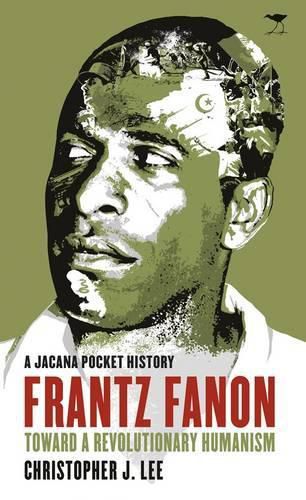Readings Newsletter
Become a Readings Member to make your shopping experience even easier.
Sign in or sign up for free!
You’re not far away from qualifying for FREE standard shipping within Australia
You’ve qualified for FREE standard shipping within Australia
The cart is loading…






Psychiatrist, revolutionary, writer and philosopher, Frantz Fanon (1925-1961) played many roles during his brief life. Born on the island of Martinique, he died in the United States from cancer, following a meteoric career that took him to France, Algeria, Tunisia, and numerous places in between. Best known for Black Skin, White Masks (1952) and The Wretched of the Earth (1961), Fanon drew upon psychology, European philosophy, and his own experience to articulate radical critiques of racism, colonialism, and nationalism that still vitally inform understandings of these issues. Yet Fanon remains controversial, given his advocacy of violent struggle, and, consequently, is often misunderstood. This biography - the most succinct and straightforward to date - demythologises Fanon by situating his life and ideas within the historical circumstances he encountered. Synthesising a range of secondary literature with readings of his work, it elevates enduring aspects of Fanon’s legacy, while also countering interpretations of his writing that have granted uncritical omniscience to his views. Written with clarity and passion, Christopher J. Lee’s account ultimately argues for the complexity of Frantz Fanon and his continued importance today.
$9.00 standard shipping within Australia
FREE standard shipping within Australia for orders over $100.00
Express & International shipping calculated at checkout
Psychiatrist, revolutionary, writer and philosopher, Frantz Fanon (1925-1961) played many roles during his brief life. Born on the island of Martinique, he died in the United States from cancer, following a meteoric career that took him to France, Algeria, Tunisia, and numerous places in between. Best known for Black Skin, White Masks (1952) and The Wretched of the Earth (1961), Fanon drew upon psychology, European philosophy, and his own experience to articulate radical critiques of racism, colonialism, and nationalism that still vitally inform understandings of these issues. Yet Fanon remains controversial, given his advocacy of violent struggle, and, consequently, is often misunderstood. This biography - the most succinct and straightforward to date - demythologises Fanon by situating his life and ideas within the historical circumstances he encountered. Synthesising a range of secondary literature with readings of his work, it elevates enduring aspects of Fanon’s legacy, while also countering interpretations of his writing that have granted uncritical omniscience to his views. Written with clarity and passion, Christopher J. Lee’s account ultimately argues for the complexity of Frantz Fanon and his continued importance today.